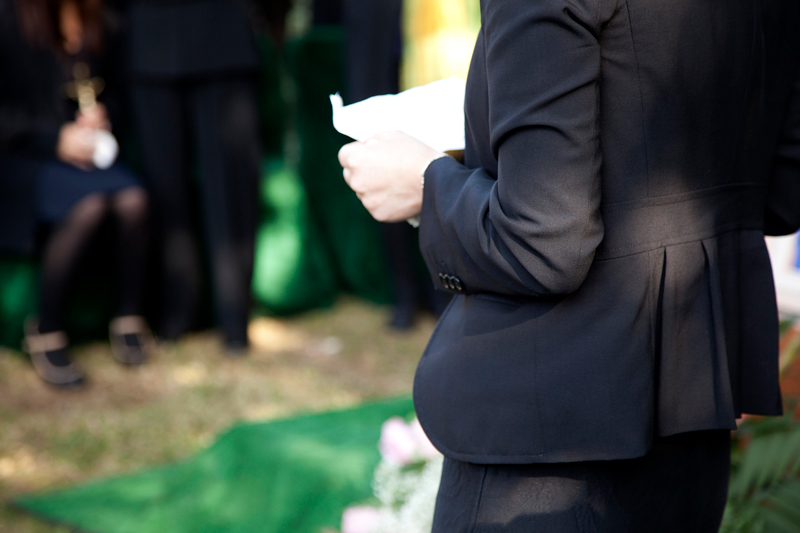Being asked to write a eulogy is a great honor but can also seem overwhelming. Find out how best to write a eulogy, even if you have never written or given one before, with these few, simple tips.
Perhaps the most important advice to consider when delivering a eulogy is to take it slow. Speak clearly and give yourself time to breathe, focus, and maintain composure. A eulogy should not be long. Don’t limit yourself to a word count but keep it short. A eulogy should take only 3-5 minutes to deliver.
Before writing a eulogy, take time to sit down and ask yourself a few questions about your subject:
- Why was this person so meaningful to you?
- What are the best memories you shared?
- How did this person touch the lives of others?
- What do you want your audience to remember about him or her?
When it comes to writing it all down, stay in touch with your feelings and let them flow. One way to begin is to talk about how you met this person. Share a funny story that happened; talk about the good times. Don’t be afraid to use humor when you highlight the finer points of that person’s life or your time together.
Be sure to include the highlights of this person’s life in terms of career, contributions to church or community, and family.
To close, mention what you’ll miss the most about this person. Reiterate their positive impact on people’s lives and the lasting impressions they made.
For an example of a eulogy, look at a few that have gone down in history:
- Sir Robert Menzies for Sir Winston Churchill
- Dianne Feinstein for Bob Hope
- Maya Angelou for Coretta Scott King
For even more inspiration, consider reading a few elegies. An elegy is different than a eulogy in that it is written long after the departed has passed. An elegy is a poem of reflection, a lament for the dead. W.H. Auden’s ‘Funeral Blues,’ Mary Jo Bang’s ‘You Were You Are Elegy,’ and A.E. Housman’s ‘To an Athlete Dying Young’ are notable places to start. These poets looked inside themselves and expressed their most heartfelt thoughts on the departed.
When delivering a eulogy, whatever you do is right as long as you are sincerely honoring the person. Don’t be afraid of saying the “wrong thing” or making a small misstep. The audience will be able to see the love your friend inspired. Try your best not to be nervous, and if you lose your composure, just keep powering through, remembering to speak slowly and clearly.
Writing and delivering a eulogy isn’t easy, so don’t be afraid to ask for help. Talk to friends and family of the loved one to get a more personal perspective on his or her life. Speak from the heart, focus on the positives, and reiterate the departed’s legacy.

